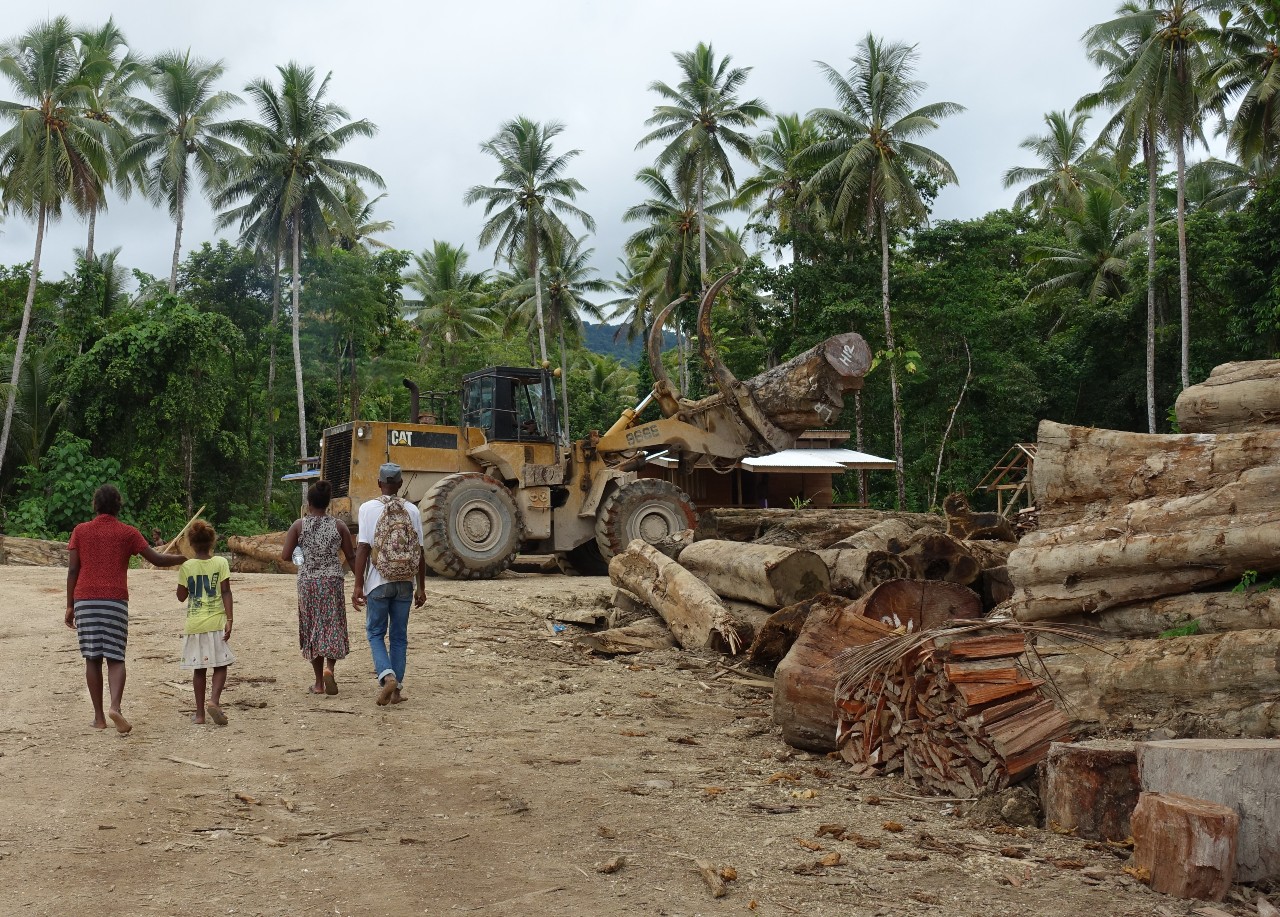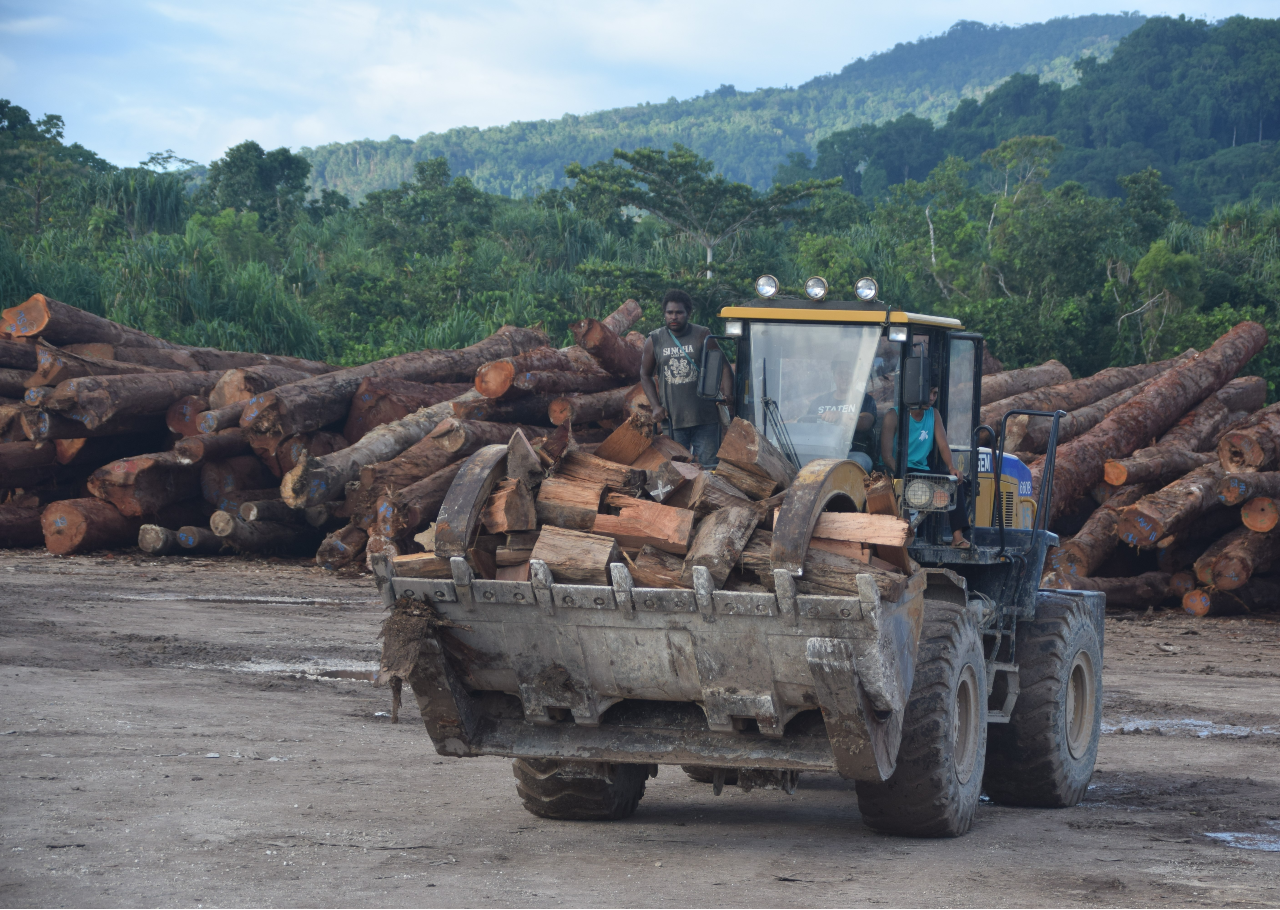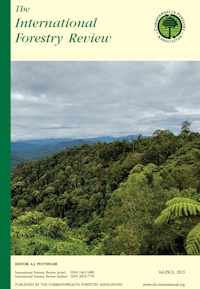
The local benefits op logging operations in tropical forests are far smaller than we often think. At the same time, the negative impacts on local wellbeing are significant. Anthropologist Tessa Minter has studied these social impacts and advocates for more attention for this issue. In her research in Solomon Islands, she found that logging does little to improve people's lives and that the impact on women is alarming.
While the arrival of logging companies is usually thought to increase employment opportunities, this proves to be very disappointing in practice. As skilled workers are often hired from outside, local people hardly benefit from the jobs created. In addition, as residents depend on an intact forest for their livelihood, the local economy suffers from the activities of logging companies. Hunting, fishing and small-scale farming are all negatively affected by logging. Minter: "Only a small elite gets a piece of the pie, but the majority really loses out."
Special Issue on The Social Impacts of Logging
Minter spent four years investigating the social impacts of logging in Solomon Islands, an archipelago in the Western Pacific. Through a Marie Curie grant, she was able to conduct fieldwork in several logging concessions. In June 2023, she published the 'Special Issue on The Social Impacts of Logging' in The International Forestry Review. In this interdisciplinary special issue, she and colleagues compare the social impacts of logging in different tropical regions. Minter presents five recommendations for more inclusive logging (See box).

Haupuro Logpond, Solomon Islands 2019 
Logpond in Nahu, Solomon Islands 2017 
Rite Trade Logpond in Nahu, Solomon Islands 2017
The position of women
One of these recommendations focuses specifically on women. While women hardly play a role in current decision-making on logging, Minter argues that these negative impacts will only be tackled if women are given more power in decision making. For example, logging in Solomon Islands frequently leads to the needless clearing of mangrove forests - the main fishing ground for women - and damage to drinking water systems. Another issue is sexual exploitation of women and girls by incoming logging personnel. Minter: "We also see a rise in teenage pregnancies and women who are left alone with their child after the logging company departs." Still, some women are taking matters into their own hands. "A few women openly speak out against logging operations, while others set up their own parallel small-scale logging businesses."
Just as for products like palm oil, gold and chocolate, we share responsibility for the consequences of our consumption, not only ecologically, but also socially
Tropical hardwood in the Netherlands
While this may all seem to take place far away, tropical hardwood is also widely used in the Netherlands. Dutch imports of tropical timber amounted to half a million cubic meters in 2021. This wood is used for public facilities such as piers, jetties and the revetments of our canals, but garden furniture and terrace planks are also often made of tropical hardwood. Minter: "It is important to be aware of the origin of this wood and what happens to local people when a logging company operates in the forests on which they depend. Just as for products like palm oil, gold and chocolate, we share responsibility for the consequences of our consumption, not only ecologically, but also socially."
Anthropologists are suited to identify subtle mechanisms
But measuring social impact is not easy. Minter explains that commotion in a community often begins when the first plans for the arrival of a logging company are made. Especially in small communities, such plans can cause upheaval and even conflict for years. Minter: "As anthropologists, we are well suited to identifying such subtle mechanisms. After all, it only becomes clear what is going on in a community when you talk to people, spend time with them, pick up conversations and hear what is being discussed during a village meeting or at a washing place. Moreover, we are trained to talk to everyone, not just the local leader or the assertive businessman. That gives a different picture."
Fair timber and local communities
Fortunately, Dutch and European timber imports are increasingly sustainably sourced. In 2021 almost 68% of tropical hardwood imported into the Netherlands carried a sustainability certificate. As of 2024, all companies producing for the European market - including timber companies - will have to report on the impacts of their business on both the environment and on people. But as said, monitoring these impacts on people is complex. Minter: For these promising developments to make a real difference, it will be crucial to develop methods that provide comprehensive insight into the extent to which local communities in tropical forests benefit from timber production and what the commercial exploitation of forest means for the social dynamics and well-being." Minter is currently working on a European grant application to take on that challenge.

In the special issue, Minter concludes with five recommendations for a more social and inclusive policy when it comes to logging:
- The involvement of local communities in decisions about logging in their areas must happen in meaningful ways and right from the beginning.
- Independent, social scientists should conduct social audits to better understand social impacts.
- Gender blindness and inequality in the logging sector should be addressed.
- Transparent mechanisms are needed to share (economic) benefits between logging companies, local communities and government agencies.
- There is a need for effective complaint, compensation and conflict mediation mechanisms that suit the local socio-political context and which recognize and respect spiritual and other non-material values of forests.






